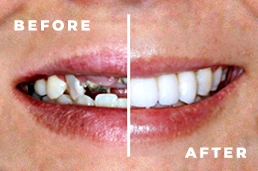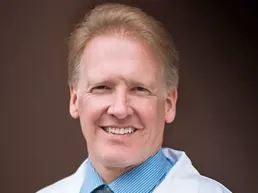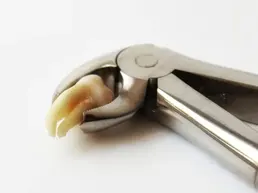The Importance of Replacing Missing Teeth
Tooth loss is a very common problem in the United States. One-third of adults between the ages of 20 and 39 are missing at least one tooth. That statistic goes up to two-thirds of adults aged 40 to 64!
Patients have to have teeth extracted for many different reasons. Some teeth have cavities so large that it is impossible to rebuild the tooth. Other teeth suffer from gum disease. Even though the tooth structure is healthy, there is no support around the tooth to hold it in place and allow it to chew properly. There are also cases where teeth crack or break all the way down into the root. All of these scenarios require extraction of the teeth.
Consequences of Not Replacing Teeth
Every single tooth performs an important function in chewing ability, proper speech, and appearance. In order to emphasize the importance of replacing missing teeth, this blog will highlight the consequences of not replacing them.
Loss of Chewing Function
Did you know that chewing is the first step in the digestive process? Chewing physically breaks down food particles and exposes them to important enzymes in our saliva.
Because each tooth plays a vital role in cutting and grinding food into digestible pieces, missing even one tooth affects the digestion of food. The more teeth that are missing, the worse the chewing ability.
One patient, who had been missing three teeth for several years, told us after having them replaced with dental implants, "I thought I was chewing just fine, but I didn't know what I was missing! Now it feels like I am really able to chew up my food."
Replacing a missing tooth improves your chewing ability and maintains a healthy digestion!
Loss of Gum Attachment on Neighboring Teeth
Having teeth that touch their neighbors on both sides is essential to maintaining the correct level of gum attachment. Our gums should completely cover the teeth's roots. When you lose a tooth, the gums slowly drift down the roots of the teeth neighboring the gap.
Once gum tissue attachment is gone, it is very difficult to regain it. Gum recession and root exposure lead to sensitive teeth that are more difficult to clean.
Replacing a missing tooth soon after extraction helps you save your gum tissue and prevent recession.
Damage to Remaining Teeth
Many people mistakenly think that extracting one tooth has no effect on the rest of the teeth. This is a dangerous myth!
The human jaws can exert a certain amount of force when they close the teeth together in normal activities like chewing or bad habits like clenching or grinding. This amount of force stays the same no matter how many teeth you have.
When you only have seven molars to do the work of eight, each molar is bearing more weight than it should. This excess force weakens the remaining teeth and makes them more likely to crack and break. Because they also lose gum attachment, they become less and less stable over time. The teeth next to a gap where a tooth is missing have a shortened lifespan.
Replacing a missing tooth relieves the burden of too much pressure on the remaining teeth and gives them a longer lifespan.
Changes in Tooth Position
One of the most important factors in the position of teeth is having contact with neighboring teeth. A tooth's position is determined by the way it touches the teeth to the front and back of it, and the way it bites against the tooth above or below.
A missing tooth disrupts that delicate balance keeping the teeth in the correct position. The neighboring teeth begin to drift into the space. This leads to teeth becoming tilted at an improper angle. Tilting opens up small gaps between other teeth, which allows food to get stuck.
An upper tooth with no tooth below it will slowly creep down into the empty space, causing changes in the bite. In severe cases, an upper tooth can drift so far downward that it actually touches the gums of the lower jaw!
Replacing a missing tooth helps you keep all of your teeth in the right position!
Sunken Cheeks and/or Lips
Another important function of the teeth is to support the cheeks and lips. The hard structure and position of the teeth keep the cheeks and lips from sinking in.
Loss of back teeth causes a gaunt look to the face by hollowing out the cheeks. Missing back teeth also shortens the bite, causing the face to look shorter. This leads to more wrinkles around the mouth, making a person look much older than he or she really is.
Replacing missing teeth fills out the cheeks and lips, reducing wrinkles and giving a more youthful appearance to the face.
Are You Interested in Replacing Missing Teeth?
Call The Dental Touch in Oakland, California, today to schedule a consultation with one of our dentists. We will discuss your treatment options for replacing missing teeth and help you choose which option is best for you.

















